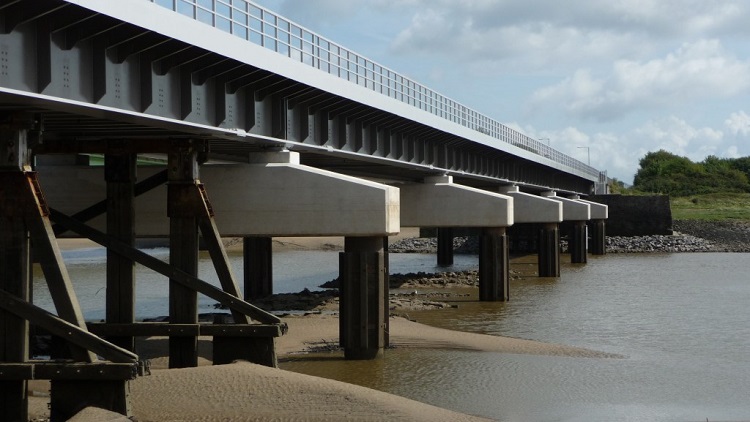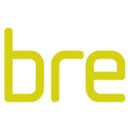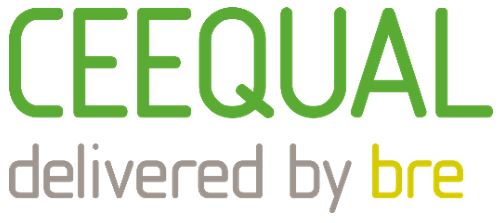CEEQUAL
 CEEQUAL assesses sustainability performance in civil engineering and public realm projects
CEEQUAL assesses sustainability performance in civil engineering and public realm projects
CEEQUAL is the evidence-based sustainability assessment, rating and awards scheme for all types of civil engineering, infrastructure, landscaping and public realm projects. Launched in 2003, it was established to deliver improved specification, design and construction of works in those areas, and challenges and encourages people to adopt more sustainable living solutions. Project managers may be better able to recognise good sustainability outcomes the earlier they engage with the scheme.
CEEQUAL uses rigorous evidence-based assessment criteria and external verification to provide a result that can be made public and used in publicity. In addition, integration of CEEQUAL in the development of projects and contracts can positively influence design and construction management and often leads to significantly better outcomes than would otherwise have been the case.
The scheme can deliver:
- More sustainable projects in civil engineering;
- Performance improvements;
- Better value and cost reductions;
- Commitment to sustainability best practice;
- Enhanced team collaboration and
- Benchmarking and knowledge sharing.
Developed originally by a team led by the Institution of Civil Engineers (ICE) and financial support from the UK Government and ICE, the original development was managed by Crane Environmental with support from government departments and agencies. Leading civil engineering consultants and contractors, as well as industry associations, also supported the scheme’s development, including CIRIA, the Association for Consultancy and Engineering (ACE) and the Civil Engineering Contractors’ Association (CECA).
The scheme was launched following industry-wide consultation and trialling, and went public in June 2004 with the publication of Version 3 of the Assessment Manual for Projects. CEEQUAL has since become an accepted UK industry scheme for assessing environmental and sustainability performance in civil engineering and public realm projects.
In 2011, CEEQUAL for International Projects was launched, as was CEEQUAL for Term Contracts which made the methodology available for all civil engineering, infrastructure, landscaping and public realm works. CEEQUAL launched an upgraded and extended version 5 in summer 2012
In November 2015, CEEQUAL became part of the BRE Group and operates alongside BREEAM, another leading sustainability assessment method for buildings, master planning and infrastructure. The move gives CEEQUAL a clear association with the BREEAM family of schemes.
In June 2019, BRE Global launched CEEQUAL Version 6 to support infrastructure project teams’ sustainability goals. It combines the technical content of the CEEQUAL and BREEAM Infrastructure methodologies, and builds upon the well-proven processes of the CEEQUAL approach to assessment.
The launch of Version 6 marks the closure of both BREEAM Infrastructure (Pilot) and CEEQUAL Version 5 schemes. To aid transition, teams already working on CEEQUAL but who have not yet registered have until 30 September 2019 to register their projects to Version 5. Those who have already registered on these schemes are able to continue on them.
For more information see: CEEQUAL version 6.
[edit] Related articles on Designing Buildings Wiki
- Building Research Establishment.
- BRE articles.
- BRE Trust.
- BREEAM.
- BREEAM and CEEQUAL.
- BREEAM and Tracker Plus.
- BREEAM associate online training.
- BREEAM In-Use International.
- BREEAM USA.
- BREEAM: Value multiplies while costs plummet.
- CEEQUAL version 6.
- Code for Sustainable Homes.
- Leadership in Energy and Environmental Design.
- Passivhaus.
- Ska rating.
- Sustainable Infrastructure Group's sustainable development goals workshop.
- WELL and BREEAM align.
Featured articles and news
A case study and a warning to would-be developers
Creating four dwellings for people to come home to... after half a century of doing this job, why, oh why, is it so difficult?
Reform of the fire engineering profession
Fire Engineers Advisory Panel: Authoritative Statement, reactions and next steps.
Restoration and renewal of the Palace of Westminster
A complex project of cultural significance from full decant to EMI, opportunities and a potential a way forward.
Apprenticeships and the responsibility we share
Perspectives from the CIOB President as National Apprentice Week comes to a close.
The first line of defence against rain, wind and snow.
Building Safety recap January, 2026
What we missed at the end of last year, and at the start of this...
National Apprenticeship Week 2026, 9-15 Feb
Shining a light on the positive impacts for businesses, their apprentices and the wider economy alike.
Applications and benefits of acoustic flooring
From commercial to retail.
From solid to sprung and ribbed to raised.
Strengthening industry collaboration in Hong Kong
Hong Kong Institute of Construction and The Chartered Institute of Building sign Memorandum of Understanding.
A detailed description from the experts at Cornish Lime.
IHBC planning for growth with corporate plan development
Grow with the Institute by volunteering and CP25 consultation.
Connecting ambition and action for designers and specifiers.
Electrical skills gap deepens as apprenticeship starts fall despite surging demand says ECA.
Built environment bodies deepen joint action on EDI
B.E.Inclusive initiative agree next phase of joint equity, diversity and inclusion (EDI) action plan.
Recognising culture as key to sustainable economic growth
Creative UK Provocation paper: Culture as Growth Infrastructure.
Futurebuild and UK Construction Week London Unite
Creating the UK’s Built Environment Super Event and over 25 other key partnerships.
Welsh and Scottish 2026 elections
Manifestos for the built environment for upcoming same May day elections.
Advancing BIM education with a competency framework
“We don’t need people who can just draw in 3D. We need people who can think in data.”


























